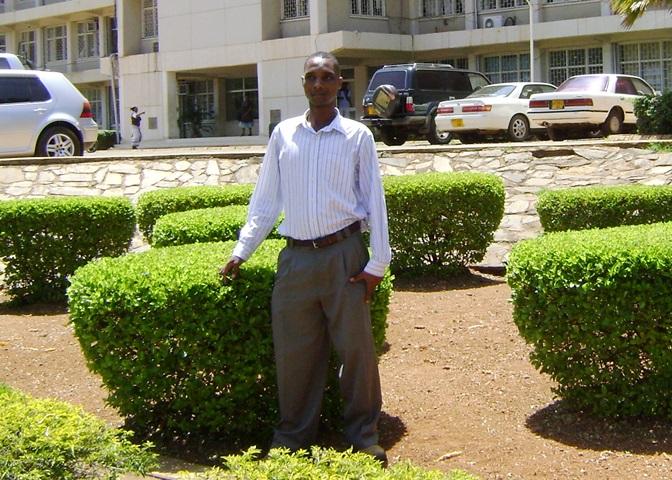Jacob Ngowi
(Tanzania)
MSc in Tropical Animal Production, Sokoine University of Agriculture
Jacob, a tutor at a college training students in livestock production, was awarded an Irish Aid Fellowship in 2011 to pursue a two year Masters programme in his home country.

I do thank very much Irish Aid for supporting my further studies. Without that I could not have done this masters programme and I’ll now be able to help others as I have been helped.
I work as a Livestock tutor at Livestock Training Institute-Mpwapwa (LITI-Mpwapwa), Tanzania. We train students for diploma and certificate courses in animal production and health.
Through the Irish Aid fellowship, I’m now studying a Masters in Tropical Animal Production at Sokoine University of Agriculture which will assist me much on training students on how they can handle domestic animals and later on increase livestock production in terms of dairy and beef production.
The MSc. programme has been very helpful to me, particularly after pursuing courses on animal nutrition and animal breeding strategies. As I go back to my work place I will be more specialised and competent in these fields to disseminate the knowledge acquired to my students. A very important thing I have gained is to be more practical in some of the various courses/subjects within MSc.Tropical animal production. I can take this knowledge and apply it in my work.
The topic of my thesis is “Evaluation of Beef Cattle Finishing Systems in Selected Areas of Mwanza Region”. I will evaluate beef cattle production performance using body weight measurements under different feeding practices. I will also evaluate the availability and quality of feeds for beef cattle finishing in two districts in the Mwanza region and identify constraints and opportunities for feed related interventions to improve beef productivity. This topic relates to one of the courses I teach at LITI-Mpwapwa and doing research in this area will broaden my knowledge. I will also draw conclusions on how feeds and feeding practices should be manipulated to produce well-finished cattle. This will be useful to students, pastoralists, agro-pastoralists and other entrepreneurs of Tanzania engaged on beef industry.
My opinion is that future development of livestock sector in Tanzania will depend on the improvement of range management. So far, many rangelands in Tanzania are undeveloped and natural pasture cannot meet carrying capacity due to bush encroachment, soil erosion and uncontrolled burning. As of now, the acquired knowledge can be shared to manage range better than before. Tanzania has a huge land resource which needs to be managed well. Alternatively, the number of cattle in Tanzania could be reduced so as to manage a medium number. By doing that we can increase production and concurrently conserve our rangelands.
When I was a young kid I had a small farm for cultivating crops like maize and vegetables. I enjoyed myself practicing agriculture and vegetable gardening. I used to ask myself why Tanzania is poor. From there I decided to study agricultural related subjects from primary school to form six. After completing my sixth form education, I decided to pursue BSc in Animal Science. I completed my first degree in 2007 and was employed by the Ministry of Livestock and Fisheries Development as Livestock tutor.
I do thank very much Irish Aid for supporting my further studies. Without that I could not have done this masters programme and I’ll now be able to help others as I have been helped.